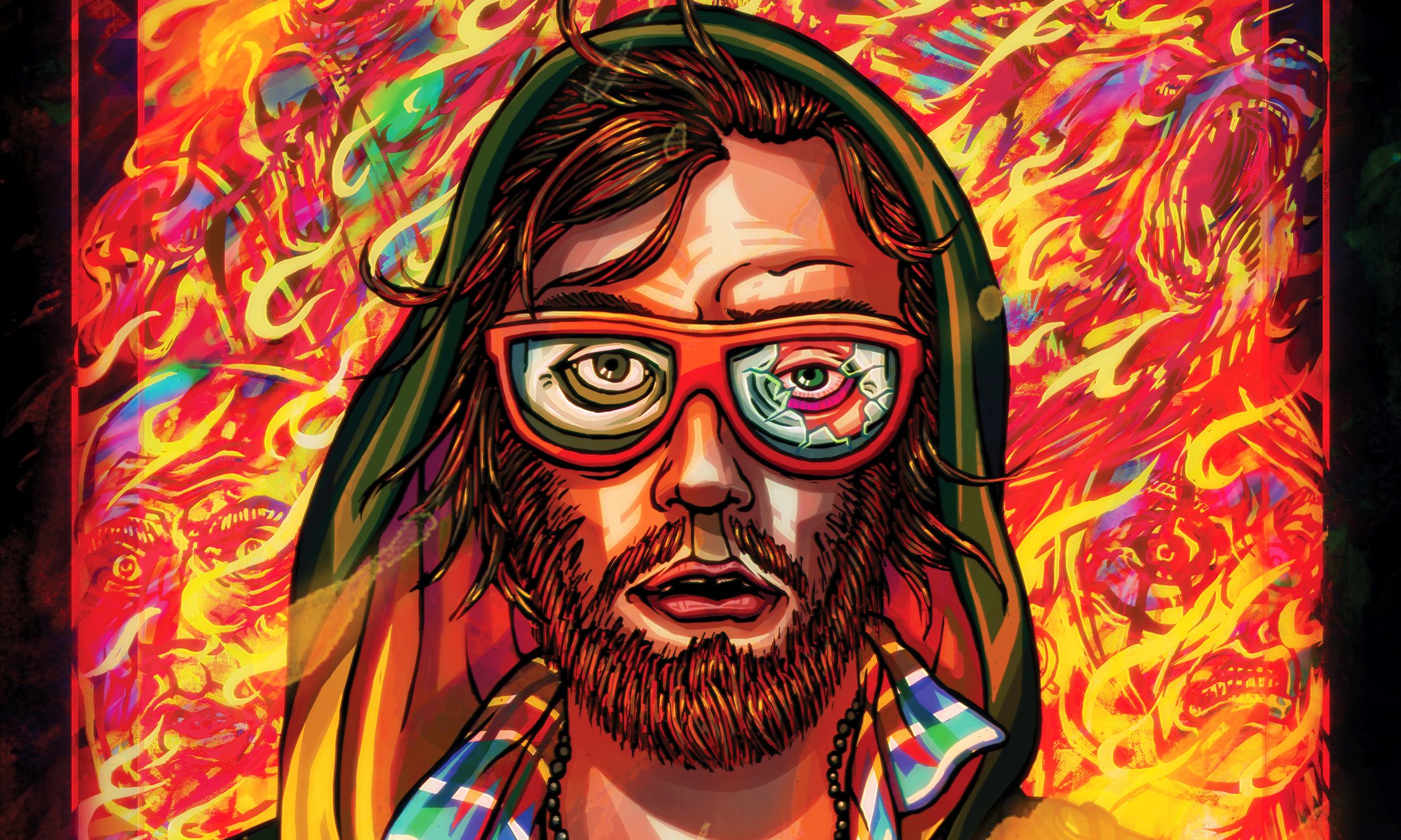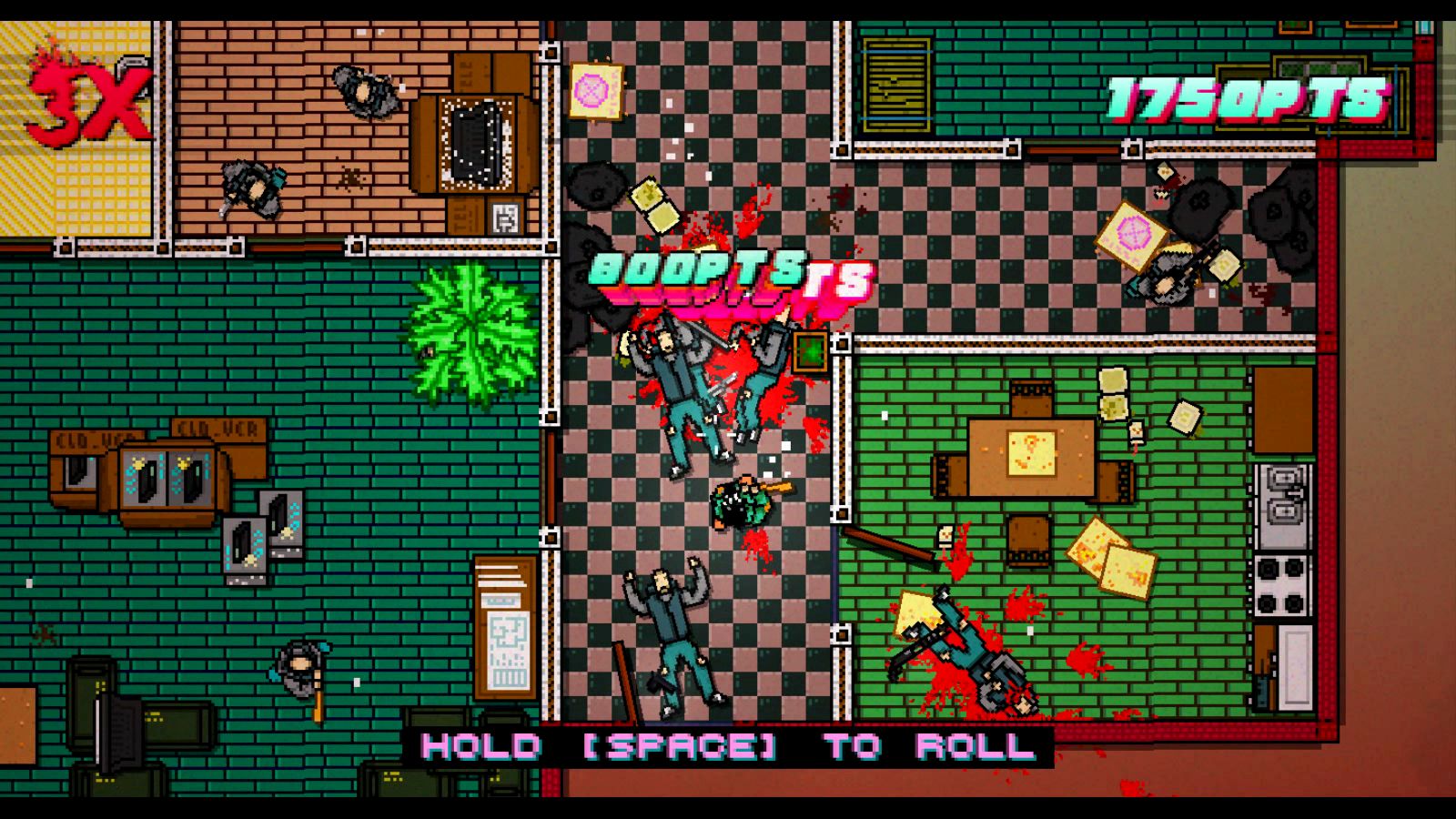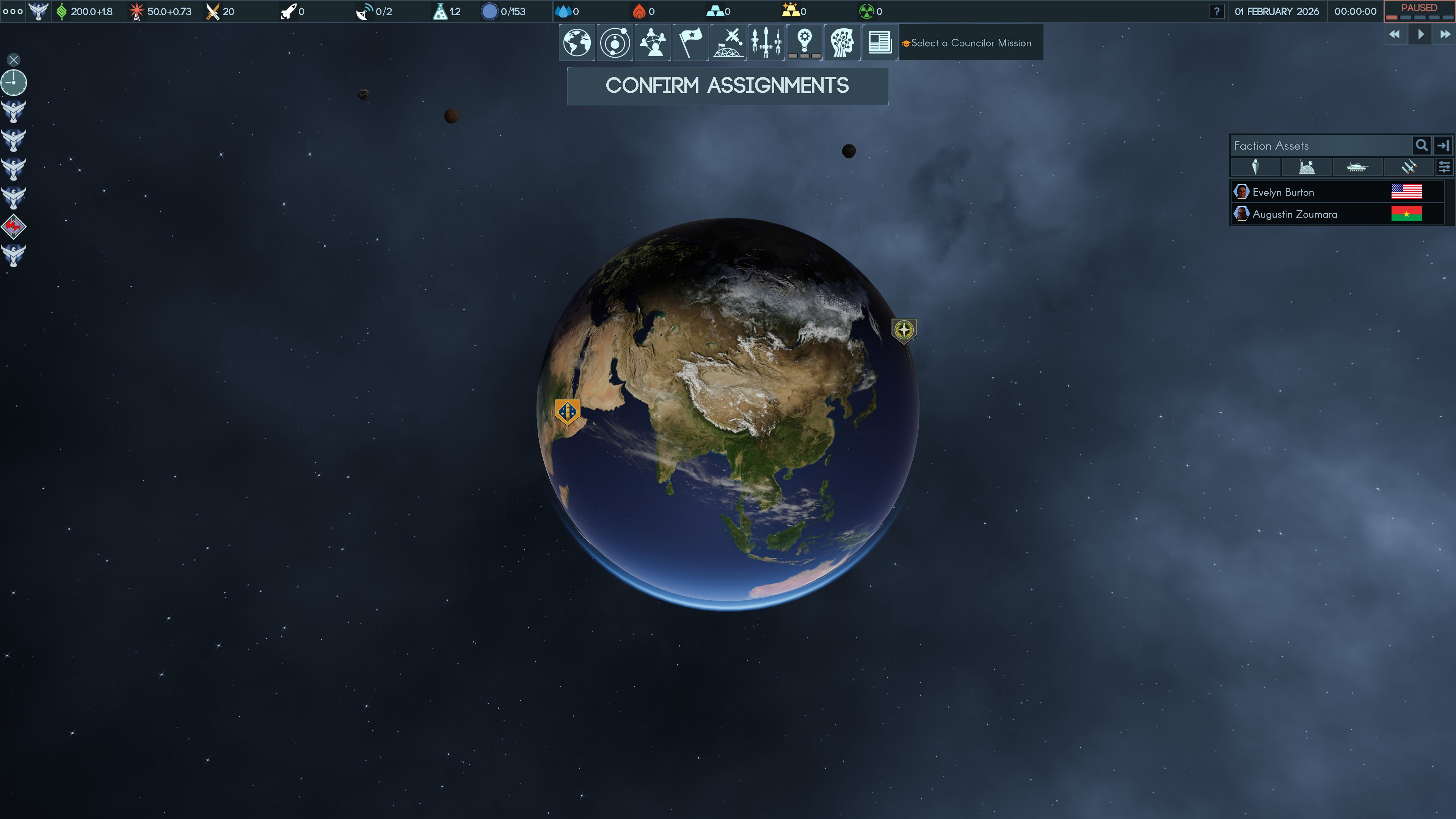
By Andi Hamilton.
Created by the Swedish two-man team of Jonatan ‘Cactusquid’ Söderström and Dennis Wedin, Hotline Miami topped game-of-the-year lists in 2012 due to its addictive action, tight game mechanics and effortlessly cool aesthetic. The ultraviolent blend of classic Grand Theft Auto, Robotron and, hell, even a bit of Rainbow Six’s ‘Open and Clear’ murdering, put their two-manned studio—Dennaton Games—on the map as one of the most exciting indie developers. As Hotline Miami 2: Wrong Number approaches, the duo talk me through their backgrounds and making the sequel.
“I have a band called ‘Fucking Werewolf’ and I had an idea for a long time that I would like to make a music videogame for it,” Wedin says. “I started hanging out with Jonatan and his brother. He was making games, so I approached him and asked if he wanted to make this game with me, and he said he would do it on the one condition that I made all the graphics, because he didn’t want to make it all himself! So that was the first time I ever did pixel art. We made that game and it was really fun working together, so we kept on going from there.”
“I have a band called ‘Fucking Werewolf’ and I had an idea for a long time that I would like to make a music videogame for it.”
Dennaton is a truly independent, punk rock game studio. Just the two of them, even after the success of the first game, and they still work from home rather than having an office. Throughout the interview, they repeatedly mention that Hotline Miami is a game they made ‘for themselves’ and that it is the game that they wanted to make—no outside influence. They’re the Ian MacKaye to Notch’s Henry Rollins. It seems like an odd pairing, as Wedin had no prior experience in making games. Zero. By this point, Söderström had already made, by his own estimation “about 50 games” before he started working with Wedin (I recommend that you check out the wild shoot-’em-up Clean Asia! and the Lynchian creepy as hell Mondo games).
“From the first time I played a game,” Söderström says, “which was when I was eight—it was Super Mario—I always wanted to play as the enemies instead of Mario, because I thought he was a silly character. Once I got older, I realised it might actually be possible to make a game. So I decided to just give it a try.”

He reckons the first game he made “was probably when I was 14. I tried to make it in Macromedia Flash but I gave up because I couldn’t figure out how to do the programming. When I got into high school—I was 16 or something—I started experimenting with GameMaker, which is an application which allows you to make games without doing any code, so I could concentrate on ideas. It seemed like a lot of fun to create games, creating your own worlds. I made a game about a cucumber with a head that jumped over a ball. Then I made a game about spitting on children... They weren’t very good. Soon I started thinking it would be fun for other people to play my games, so I started going onto online forums and uploading my games there. I got a lot of response to it so I just kept doing it.”
It’s no secret that the eventual release of Hotline Miami on Steam wasn’t the smoothest of launches. Bugged achievements, rough controller support, and in some cases the game wouldn’t run at all. The duo chalk this up to an admitted lack of experience when it came to shipping an actual full release of a videogame, some publisher pressure, and simply running out of money. Obviously, this is something Dennaton are doing their utmost to avoid for the sequel.
Keep up to date with the most important stories and the best deals, as picked by the PC Gamer team.
“First off, we had never released a game for cash, really, and if a game is for free and it doesn’t work no one will let you know,” Wedin explains. “So we didn’t know anything about the problems GameMaker had with a new DirectX and stuff like that, because we never got any feedback. So when we released the game we saw that it didn’t run at all on Windows 8... it was very hectic at the end. We were out of cash.”
PC Gamer is the global authority on PC games—starting in 1993 with the magazine, and then in 2010 with this website you're currently reading. We have writers across the US, Canada, UK and Australia, who you can read about here.


